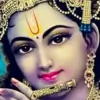Originally posted by: Ashwini_D
I agree with Basu sir here- Yudi was probably given the 'Dharmaraj' title precisely because he adhered to 'dharma' as was defined by those times. But he had other exemplary qualities too which have been mentioned before. He was definitely better than the likes of Jarasandha- who had violated the kshatriya COC and was planning to sacrifice kings whose kingdoms he had usurped.
Same is the case with Duryodhan- not only did he trespass boundaries of accepted morality of today's times, but also those of dwapar yug.
Adding in on the whole 'what makes Dharma great' thread, my few cents worth:
1. It is a fact that history is written by the winners. So by default, Dharma's winning of the war made him 'the better man', rather than the other way around. But having said that, I think its only human of us to want to believe that good won - which is probably why the original and subsequent contributors to the CE hyped Dharma up so.
2. IMHO, one of the greatest lessons of the MBh is that there is no clear-cut black/white or good/bad. So to try and always posit Syoddhan and Dharma as polar opposites, to find bad in one and good in the other (whichever one picks) is to impose mythical standards on history, rather than other way round. So, they both did some good things and some not so good things. So what if Dharma didn't learn his lesson(s) till nearly the end of the war. We don't have to justify their actions to like them, or condemn them as individuals to call out their wrongs.They played their part in a larger story of a society and its change. The point is not so much their individual transgression of existing COC, but the fact that the COC itself needed and was going through change.
3. What redeems Dharma (again IMHO) is that he tried to be true to something, even if that something was outdated by his own times. Paraphrasing the Gita - wrong action is worse than right action, but even worse than wrong action is inaction - the last being something that many others were, on more that one occasion, guilty, perhaps none more so than Bhishma, who refused to take a stand. On more than one occasion he says (and Dharma quotes him) "Morality is a subtle thing".
4. Finally, I apologize if my comments seem more conversational than scholarly - In a sense, these characters are people (friends even) that I live with and meet on a daily basis, and I am not always able to talk about them as historical/mythological characters alone.




























